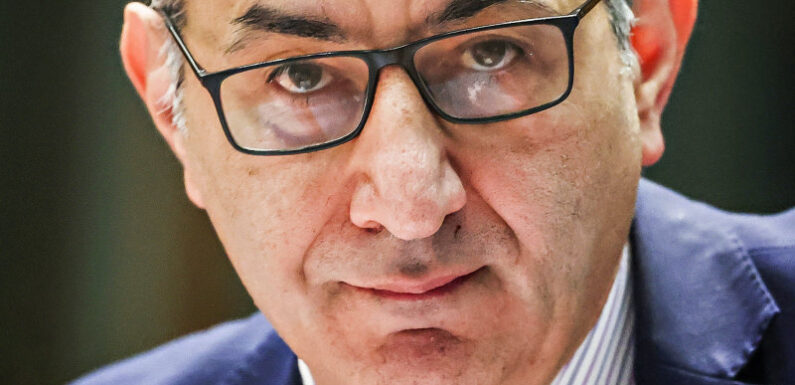
Save articles for later
Add articles to your saved list and come back to them any time.
Before he was sacked on Monday, there were murmurings in Canberra that Labor would rue the anticipated departure of fallen public service chief Michael Pezzullo. The argument went that Pezzullo is indispensable because of his unique ability to manage a security crisis, such as the recent order by the High Court that immigration detainees with criminal records be released into the community.
This simplistic view ignores the fact that, while the hawkish Pezzullo can take much credit for running Operation Sovereign Borders and other hardline border security operations, the Home Affairs empire he built and oversaw never worked as intended and has failed at critical junctures.
As a result of these departmental failings, organised criminals have slipped into Australia and stayed here for far too long; women have been trafficked and exploited as part of an underground sex trade; pockets of the international education sector and Home Affairs’ regulated migration agents’ industry have hosted entrenched corruption.
And vast sums of public money that was ostensibly spent on running the Pacific Solution on Nauru and in PNG was in fact rorted, abused and used to pay suspected bribes to foreign officials.
We know about these scandals despite Pezzullo’s disdain for traditional accountability mechanisms in the form of press or parliamentary scrutiny. It was investigative journalism that dug them up and forced the Albanese government to act.
In response, the government appointed former police chief commissioner Christine Nixon to investigate how criminals could so easily enter Australia and to recommend major reforms to the education and migration sectors. Former ASIO director general Dennis Richardson’s report into Home Affairs’ mishandling of procurement in offshore processing is yet to be released, but it will be equally damning.
Richardson has concluded the problems Home Affairs was meant to solve with its creation, such as the failure of key border security agencies to share information, continued under Pezzullo’s watch. Nixon made similar observations. Critical intelligence was gathered but often not shared or acted upon.
Pezzullo, though, was not sacked for any of these departmental problems.
Initially eager to avoid a night of the long knives, and later impressed with Pezzullo’s endless energy and deep bureaucratic knowledge, Home Affairs Minister Clare O’Neil was content to keep Pezzullo in charge of the department he helped found, even as its problems mounted.
Keeping Pezzullo at the helm of Home Affairs also meant Labor could seamlessly continue Sovereign Borders and avoid the cheap political slur that it was softer on boat people than the Coalition.
Pezzullo’s eventual removal on Monday is the result of other conduct – his five years of messaging with political operative and lobbyist Scott Briggs. This was not merely a series of injudicious personal interactions.
Rather, the messages reveal a man deeply and, at times, obsessively, concerned with advancing his personal agenda while discarding the public service rules that required him to be apolitical.
In his private messages, Pezzullo pushed and cajoled Briggs to use his backroom influence with successive Coalition prime ministers to champion politicians Pezzullo knew would advance his own career, while knifing those he felt might stand in his way.
It is unquestionable that this energy should have been solely focused on addressing the problems that were occurring in his department, instead of playing Machiavelli.
In his private messages, Pezzullo revelled in his ability to manage away efforts by the press and senate estimates to expose problems in government. This deft manoeuvring only stalled the sort of accountability that Home Affairs desperately needed.
The government should, for example, have scrapped contracts with offshore processing companies linked to corruption, or, acted on its own intelligence about human trafficking. Pezzullo’s presence at the head of the department is likely to have stood in the way.
The failure of the Albanese government to release the full report into Pezzullo’s conduct leaves questions about his time as Home Affairs chief.
While it was a relatively minor contract in dollar terms, Pezzullo’s decision to use his departmental power to hand an advisory contract to a company part-managed by one of his lobbyist mates was one of the acts scrutinised by the inquiry that led to his sacking. And yet it remains shrouded in secrecy.
The $79,500 contract was part of a Home Affairs examination of letting private enterprise manage select quarantine services in Australia, much as it had done with offshore processing. If it had gone the way of the latter, millions of dollars may have been earned by service companies who had in turn been working with a company (albeit a not for profit) run by lobbyists Pezzullo considered personal friends.
Cut through the noise of federal politics with news, views and expert analysis from Jacqueline Maley. Subscribers can sign up to our weekly Inside Politics newsletter here.
Most Viewed in Politics
From our partners
Source: Read Full Article